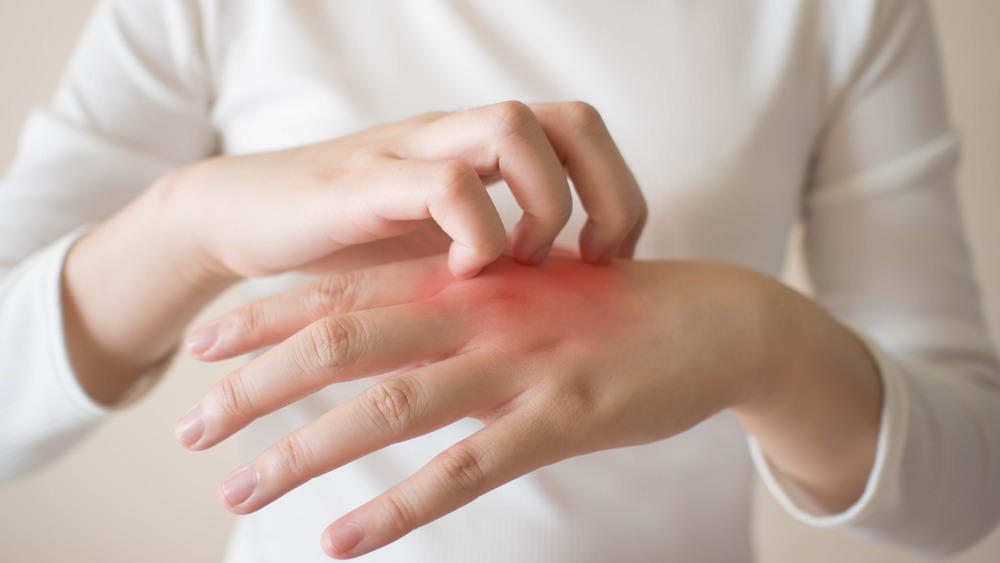You Might Be Allergic To Your Jewelry If This Happens
When you don a sparkly bauble on your hand or dangle chandelier earrings from your ears, it's safe to assume you're doing so to add some pizzazz to your outfit or because the pieces of jewelry have sentimental value. Chances are, you're not planning on your jewelry causing red, itchy, lumpy skin. But if you're allergic to certain types of metal, this can be exactly what comes of wearing pieces made of those metals, or even from touching things like door knobs, coins, or other metal objects.
According to the Cleveland Clinic, a metal allergy presents this way: When you come in contact with the metal you're sensitive to, whether with prolonged contact (like wearing a necklace) or brief contact (like handling coins), your skin cells actually absorb small particles of that metal, which then move into your lymph nodes. Then, like any allergy, your body responds to these particles as if they are dangerous "foreign invaders" by attacking them with your immune system. Since this is generally a topical reaction (meaning it is happening to your skin from contact), this immune response usually presents as "contact dermatitis" (a fancy name for a rash) that can feature itchy, red skin, swelling, or even, in more severe cases, scaling or blistering of the skin.
What to do about a metal allergy
The reason you often see "hypoallergenic" claims on jewelry made from silver, gold, and surgical steel, is because while a person could develop an allergy to any type of metal, the most common metal allergies are to nickel, cobalt, and chromates (via Cleveland Clinic). If you're among those who have a metal allergy, you are far from alone. A 2014 study in Immunologic Research states that about 15 percent of people are affected by this type of allergy. It's actually the most common workplace-related allergic reaction and is also the most common public contact allergen (via NIH.gov).
If you notice that certain pieces of jewelry are causing you irritation, it's a good idea to contact your doctor for allergy testing so that you can be sure to avoid the specific allergen in the future. According to the Cleveland Clinic, once you've had an allergic response to a metal, every time you come in contact with that metal, you are likely to have the same reaction.

